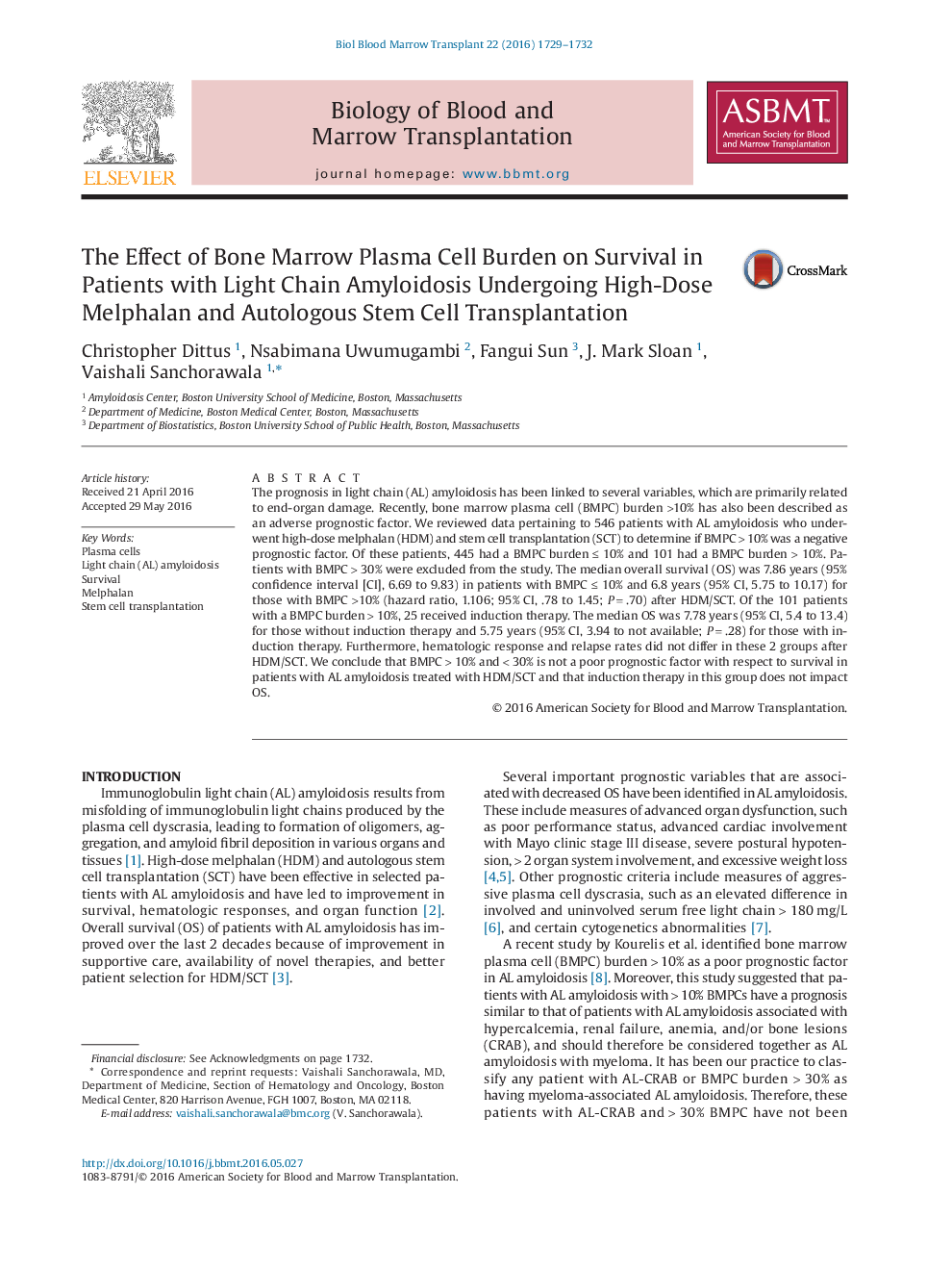| Article ID | Journal | Published Year | Pages | File Type |
|---|---|---|---|---|
| 2101297 | Biology of Blood and Marrow Transplantation | 2016 | 4 Pages |
•Overall survival of patients with light chain amyloidosis and bone marrow plasma cell burden ≤ 10% and >10% did not differ after high-dose melphalan and stem cell transplantation•Induction therapy for patients with bone marrow plasma cell burden > 10% and < 30% did not alter overall survival•Hematologic complete response and relapse rates did not differ in patients with bone marrow plasma cell burden ≤ 10% and >10% after high-dose melphalan and stem cell transplantation.
The prognosis in light chain (AL) amyloidosis has been linked to several variables, which are primarily related to end-organ damage. Recently, bone marrow plasma cell (BMPC) burden >10% has also been described as an adverse prognostic factor. We reviewed data pertaining to 546 patients with AL amyloidosis who underwent high-dose melphalan (HDM) and stem cell transplantation (SCT) to determine if BMPC > 10% was a negative prognostic factor. Of these patients, 445 had a BMPC burden ≤ 10% and 101 had a BMPC burden > 10%. Patients with BMPC > 30% were excluded from the study. The median overall survival (OS) was 7.86 years (95% confidence interval [CI], 6.69 to 9.83) in patients with BMPC ≤ 10% and 6.8 years (95% CI, 5.75 to 10.17) for those with BMPC >10% (hazard ratio, 1.106; 95% CI, .78 to 1.45; P = .70) after HDM/SCT. Of the 101 patients with a BMPC burden > 10%, 25 received induction therapy. The median OS was 7.78 years (95% CI, 5.4 to 13.4) for those without induction therapy and 5.75 years (95% CI, 3.94 to not available; P = .28) for those with induction therapy. Furthermore, hematologic response and relapse rates did not differ in these 2 groups after HDM/SCT. We conclude that BMPC > 10% and < 30% is not a poor prognostic factor with respect to survival in patients with AL amyloidosis treated with HDM/SCT and that induction therapy in this group does not impact OS.
